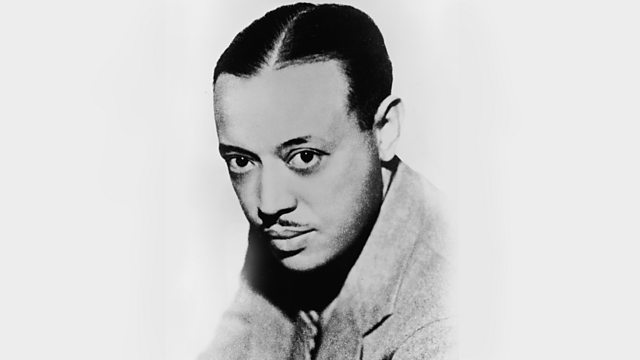
Troubled Island
Donald Macleod explores the life and music of African-American composer William Grant Still. Today, Still’s uphill struggle to establish himself as a composer of opera.
Donald Macleod explores the life and music of African-American composer William Grant Still. Today, Still’s uphill struggle to establish himself as a composer of opera.
Of Still’s eight surviving operas, to date only five have had any kind of production. The first of these, Troubled Island, was produced by New York City Opera in 1949, which was the first time a major American opera company had put on a work by an American-born composer, regardless of race. Following an initial rejection by the Metropolitan Opera and despite the advocacy of the conductor Leopold Stokowski, it had taken the best part of a decade form the opera's completion to bring it to the stage, with plenty of haggling over funding along the way. Three performances were scheduled, with leading roles taken by white singers in blackface. The première was well received by the audience, but the reviews were hostile, and after the initial run, there were no further performances. Still was understandably devastated by the critical panning meted out to his long-cherished project, and came to believe that the opera’s chances had been deliberately sabotaged in some kind of racist plot. It would be nearly four decades before New York City Opera staged another opera by a black composer.
Whippoorwill's Shoes (Wood Notes)
Fort Smith Symphony
John Jeter, conductor
Little Black Slave Child (Troubled Island)
Christin-Marie hill, mezzo soprano
Andrew Altenbach, piano
Ennanga, for harp, piano and string quartet (1. Moderately fast)
Lois Adele Craft, harp
Annette Kaufman, piano
Kaufman String Quartet
Symphony No 3, ‘The Sunday Symphony’ (2. Prayer – very slowly; 3. Relaxation – Gaily)
Fort Smith Symphony
John Jeter, conductor
Lyric Quartette
Oregon String Quartet
Highway One: Act I (extract)
Robert Honeysucker, baritone (Bob)
Louise Toppin, soprano (Mary)
Pamela Dillard, mezzo soprano (Aunt Lou)
Vocal Essence
St Olaf Orchestra
Philip Brunelle, conductor
Grief (Weeping Angel)
Thomas Hampson, baritone
Wolfram Rieger, piano
Produced by Chris Barstow for ����ý Wales
Last on
More episodes
Next
You are at the last episode
Music Played
-
![]()
William Grant Still
Whippoorwill's Shoes [Wood Notes for orchestra]
Performer: Fort Smith Symphony. Conductor: John Jeter.- Naxos 8.559676.
- NAXOS.
- 4.
-
![]()
William Grant Still
Little Black Slave Child
Performer: Christin-Marie Hill. Performer: Andrew Altenbach. -
![]()
William Grant Still
Ennanga for harp, piano and string quartet
Performer: Lois Adele Craft. Performer: Annette Kaufman. Ensemble: Kaufman Quartet. -
![]()
William Grant Still
Symphony No 2 (Song of a New Race)
Performer: Fort Smith Symphony. Conductor: John Jeter. -
![]()
William Grant Still
Lyric Quartet
Ensemble: Oregon String Quartet. -
![]()
William Grant Still
Highway One (Act I, Extract)
Performer: Robert Honeysucker. Performer: Louise Toppin. Performer: Pamela Dillard. Performer: Vocal Essence. Performer: St. Olaf Orchestra. Performer: Philip Brunelle. -
![]()
William Grant Still
Grief
Performer: Wolfram Rieger. Singer: Thomas Hampson.
Broadcasts
- Fri 8 Feb 2019 12:00����ý Radio 3
- Fri 7 Aug 2020 12:00����ý Radio 3
Beethoven Unleashed – the box set
What was really wrong with Beethoven?
Composers A to Z
Who knew? Five eye-opening stories from Composer of the Week
Five reasons why we love Parry's Jerusalem
What is the strange power of Jerusalem which makes strong men weep?
A man out of time – why Parry's music and ideas were at odds with his image...
The composer of Jerusalem was very far from the conservative figure his image suggests.
Composer Help Page
Find resources and contacts for composers from within the classical music industry.





